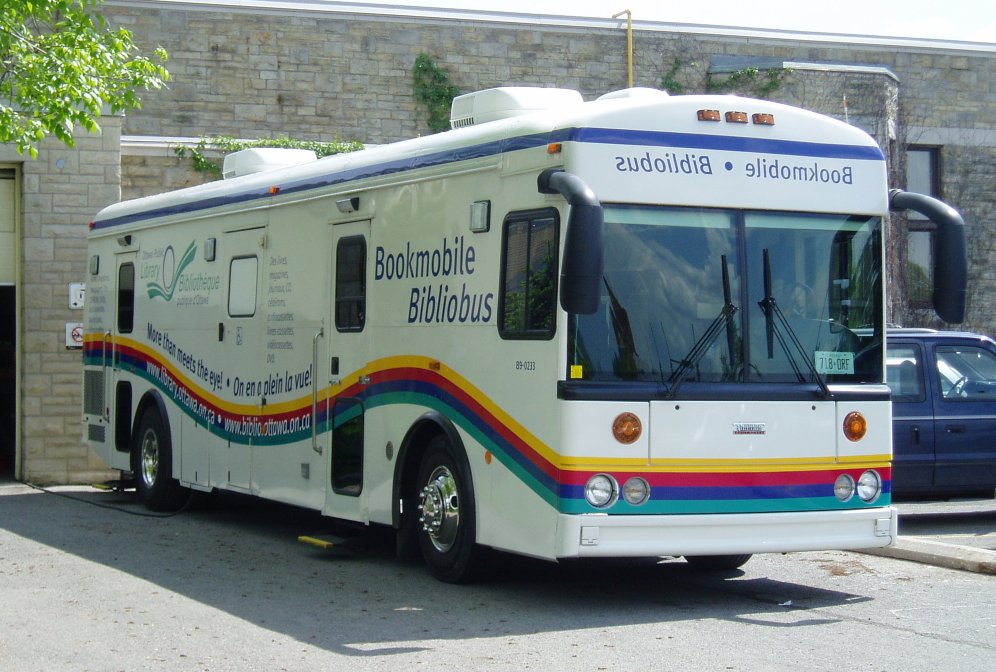|
Traveling Library
A traveling library is a collection of books lent for stated periods by a central library to a branch library, club, or other organization or, in some instances, to an individual. The chief characteristics from which it derives its name are its temporary location in the place to which the collections of books is sent and the implication that any traveling library will or may be changed for another collection of books. A bookmobile is an example. History The date of the first traveling library is uncertain. Among its forerunners can be noted the itinerant chapman and ballad seller, the religious colporteur, and the camp library of Napoleon I listed in Bourrienne's ''Mémoires''. The traveling library can also be cited as a logical outgrowth of the "circulating schools" of Wales, promoted in 1730 by Griffith Jones, and the later similar extension schools of the General Assembly of the Kirk of Scotland in the Highlands and the Scottish islands. The first really practicable travelin ... [...More Info...] [...Related Items...] OR: [Wikipedia] [Google] [Baidu] |
Bookmobile
A bookmobile or mobile library is a vehicle designed for use as a library. They have been known by many names throughout history, including traveling library, library wagon, book wagon, book truck, library-on-wheels, and book auto service. Bookmobiles expand the reach of traditional libraries by transporting books to potential readers, providing library services to people in otherwise underserved locations (such as remote areas) and/or circumstances (such as residents of retirement homes). Bookmobile services and materials (such as Internet access, large print books, and audiobooks), may be customized for the locations and populations served. Bookmobiles have been based on various means of conveyance, including bicycles, carts, motor vehicles, trains, watercraft, and wagons, as well as camels, donkeys, elephants, horses, and mules. History 19th century In the United States of America, The American School Library (1839) was a traveling frontier library published by Harper & Bro ... [...More Info...] [...Related Items...] OR: [Wikipedia] [Google] [Baidu] |
Melvil Dewey
Melville Louis Kossuth "Melvil" Dewey (December 10, 1851 – December 26, 1931) was an influential American librarian and educator, inventor of the Dewey Decimal system of library classification, a founder of the Lake Placid Club, and a chief librarian at Columbia University. He was also a founding member of the American Library Association but resigned in 1905, due to allegations of sexual harassment, racism, and antisemitism. Education and personal life Dewey was born on December 10, 1851, in Adams Center, New York, the fifth and last child of Joel and Eliza Greene Dewey. He attended rural schools and determined early on that his destiny was to reform education of the masses. He briefly attended Alfred University (1870), then Amherst College, where he belonged to Delta Kappa Epsilon, and from which he earned a bachelor's degree in 1874 and a master's in 1877. While still a student, he founded the Library Bureau, which sold high-quality index-cards and filing-cabinets, and es ... [...More Info...] [...Related Items...] OR: [Wikipedia] [Google] [Baidu] |
Lucy Browne Johnston
Lucy Browne Johnston (April 7, 1846 – February 17, 1937) was an American social and political reformer and women’s suffrage activist. She was involved with various social movement including Prohibition, women’s enfranchisement, women’s education through the women’s club movement, and the traveling library movement. Early life Johnston was born on April 7, 1846, to Robert and Margaret Browne on a farm in Camden, Ohio. Johnston spent her childhood in Camden, attending and finishing grade school there. Camden did not have a library during Johnston's childhood; Johnston's discovery of a shelf of books intended for the public school in her doctor’s office inspired her to take up the cause of traveling libraries later in life. Higher education and marriage Johnston left Camden after finishing grade school to attend the Western Female Seminary in Oxford, Ohio. Johnston graduated in 1866 with a degree doctor of laws, and then returned to Camden to teach at a grade school ... [...More Info...] [...Related Items...] OR: [Wikipedia] [Google] [Baidu] |
Woman's Club Movement In The United States
The woman's club movement was a social movement that took place throughout the United States that established the idea that women had a moral duty and responsibility to transform public policy. While women's organizations had always been a part of United States history, it was not until the Progressive era that it came to be considered a movement. The first wave of the club movement during the progressive era was started by white, middle-class, Protestant women, and a second phase was led by African-American women. These clubs, most of which had started out as social and literary gatherings, eventually became a source of reform for various issues in the U.S. Both African-American and white women's clubs were involved with issues surrounding education, temperance, child labor, juvenile justice, legal reform, environmental protection, library creation and more. Women's clubs helped start many initiatives such as kindergartens and juvenile court systems. Later, women's clubs tackle ... [...More Info...] [...Related Items...] OR: [Wikipedia] [Google] [Baidu] |


